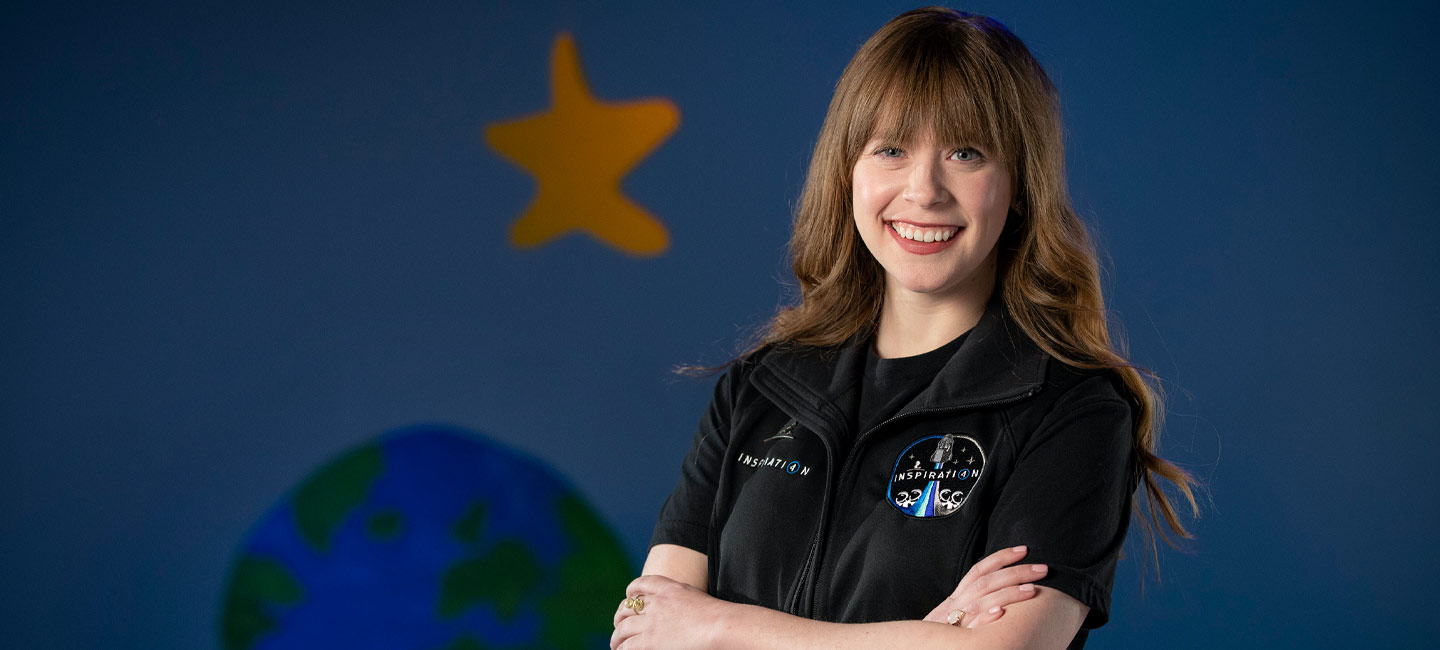Osteosarcoma Survivor to Join All-Civilian SpaceX Crew
Nearly two decades after beating osteosarcoma, a type of bone cancer found in adolescents and young adults, 29-year-old Hayley Arceneaux is set to become the youngest American to travel to space.
St. Jude Children’s Research Hospital announced that Arceneaux will be one of four crew members on the world's first all-civilian mission to space. Arceneaux was once a patient at St. Jude and now works there as a physician assistant. The mission, called Inspiration4, is tentatively set to take off at the end of this year.
In early February trip commander Jared Isaacman announced that he had bought the flight from SpaceX and would donate the three other seats to members of the general public. Arceneaux will serve as the crew’s medical officer.
The Memphis, Tenn. native will also be the first to launch with a prosthesis. When she was 10, she had surgery to replace her knee and get a titanium rod in her left thigh bone.
According to Dr. Damon Reed, an oncologist in Moffitt Cancer Center’s Department of Individualized Cancer Management, osteosarcoma commonly appears during growth spurts. It typically begins as a pain in a bone, most commonly in the legs or arms, but eventually worsens over time.
The current treatment is inpatient chemotherapy for 10 weeks, followed by removal of the tumor through surgery, and then followed up with 19 more weeks of chemotherapy.
Osteosarcoma Research at Moffitt
“Chemotherapy used in newly diagnosed osteosarcoma patients hasn’t changed in decades,” said Reed. “Osteosarcoma needs teams dedicated to better therapies.”
Reed and Dr. Mihaela Druta are leading a phase 2 trial along with Dr. Patrick Thompson from the University of North Carolina through the National Pediatric Cancer Foundation’s Sunshine Project, a research network consisting of more than 20 cancer centers across the United States. This trial is also funded by a Live Like Bella Childhood Cancer Foundation grant through the Florida Department of Health.
Single drug immunotherapy has not had an effect on osteosarcoma, so this trial combines immunotherapy with a drug that may both increase the immune system’s response and better reveal the tumor to the immune system. The purpose of the trial is to determine if this novel combination is safe and if it can improve survival in patients who have relapsed.



